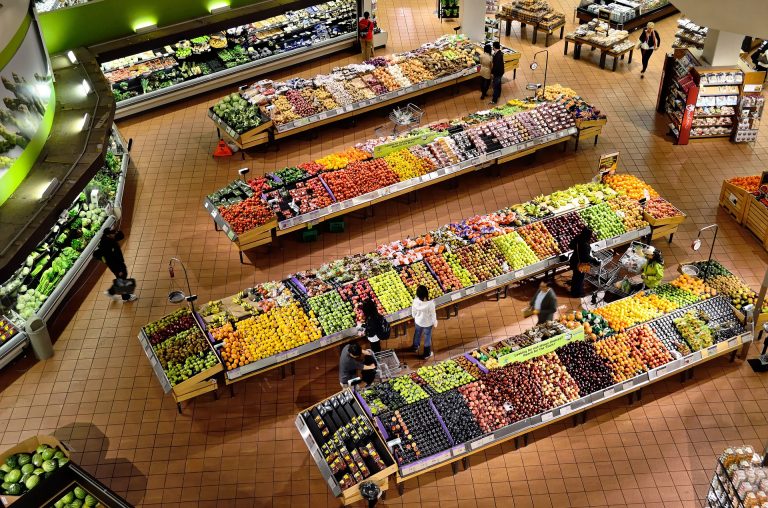The supply chain crisis in the United States is becoming so severe that it has started affecting basic necessities like groceries. Some supermarkets are running out of products to stock on their shelves.
At Publix and Target stores in San Jose, shelves that used to be filled with canned goods, pet food, snacks, etc. were “bare and nearly empty,” News4Jax reported. At Publix, snack items like beef jerky were running low while supplies of frozen foods had dwindled. In Target, fruit snacks were limited and protein bars were almost out of stock. Both stores had put up restrictions on the purchase of pet food.
In some places, the price of pork products has risen by 12 percent over the past year. Steaks, roasts, and bacon have risen by 20 percent. Ground beef is up by 10 percent since 2020.
In a Sept. 29 open letter to heads of states attending the United National General Assembly, the International Chamber of Shipping together with other industry groups warned about catastrophic consequences in the global supply chain. If world governments continue to restrict freedom of movement of transport workers and not prioritize them for vaccination, there could be a “global transport system collapse,” the groups warned.
“Global supply chains are beginning to buckle as two years’ worth of strain on transport workers take their toll… All transport sectors are also seeing a shortage of workers, and expect more to leave as a result of the poor treatment millions have faced during the pandemic, putting the supply chain under greater threat,” the letter said.
Success
You are now signed up for our newsletter
Success
Check your email to complete sign up
Groceries being affected by the supply chain stress is bad news for the regular functioning of society as it results in people having to shell out more money to meet their daily needs. According to Mark Zandi, chief economist at Moody’s Analytics, U.S. households earning $70,000 per year are now forced to spend an additional $175 per month on food, housing, and fuel.
Biden officials are calling inflation “transitory” even as it hits a three-decade high. In August, inflation was up 5.3 percent compared to the same month last year. The price for food at home has more than doubled in September from August. Some believe President Biden’s $5 trillion coronavirus stimulus has played a part in inflating prices.
The White House has announced that the Ports of Long Beach and Los Angeles will move towards a 24/7 operation timeline to speed up clearing the pending cargo. Logistics and retail companies like UPS and Walmart have also announced willingness to extend operating hours to smooth out stress on supply chains.
“We need the rest of the private sector chain to step up as well… This is not called a supply chain for nothing. This means terminal operators, railways, trucking companies, shippers, and other retailers as well. Stretching our supply chain will continue to be my team’s focus,” Biden said.
Some are also placing the blame of the current supply crisis and tightening grocery situation on the federal government and Democrat state governments for handing out significant amounts of unemployment benefits. In certain instances, these benefits even outweigh wages being offered in the private sector, thereby making people hesitant to work at regular jobs.
As a consequence, employers, including those in the supply and logistics industry, are finding it hard to hire employees. Some are hiking wages to make sure they get enough workers. And the costs of these higher wages go into the final product price, thus driving consumer prices even higher.















